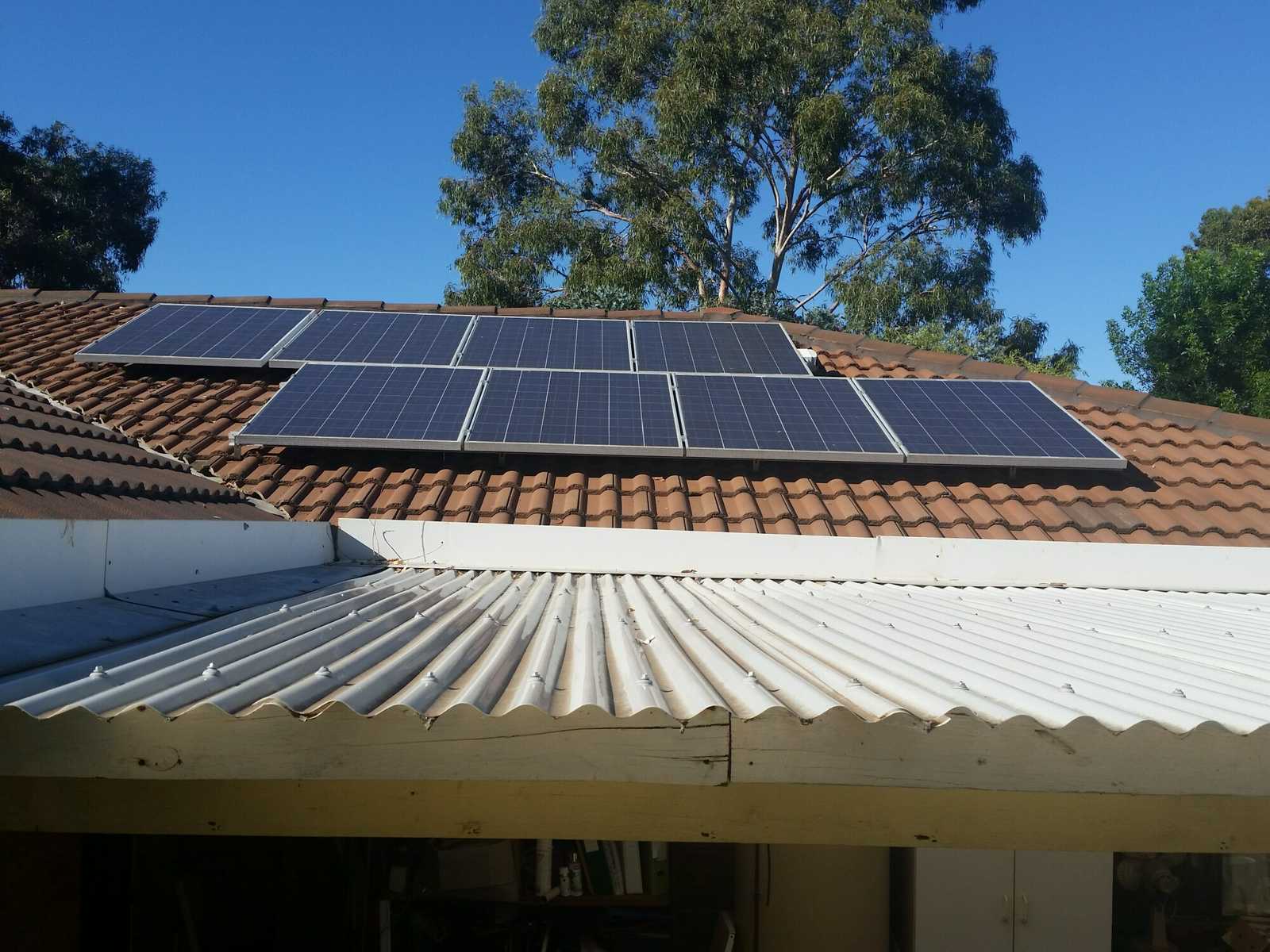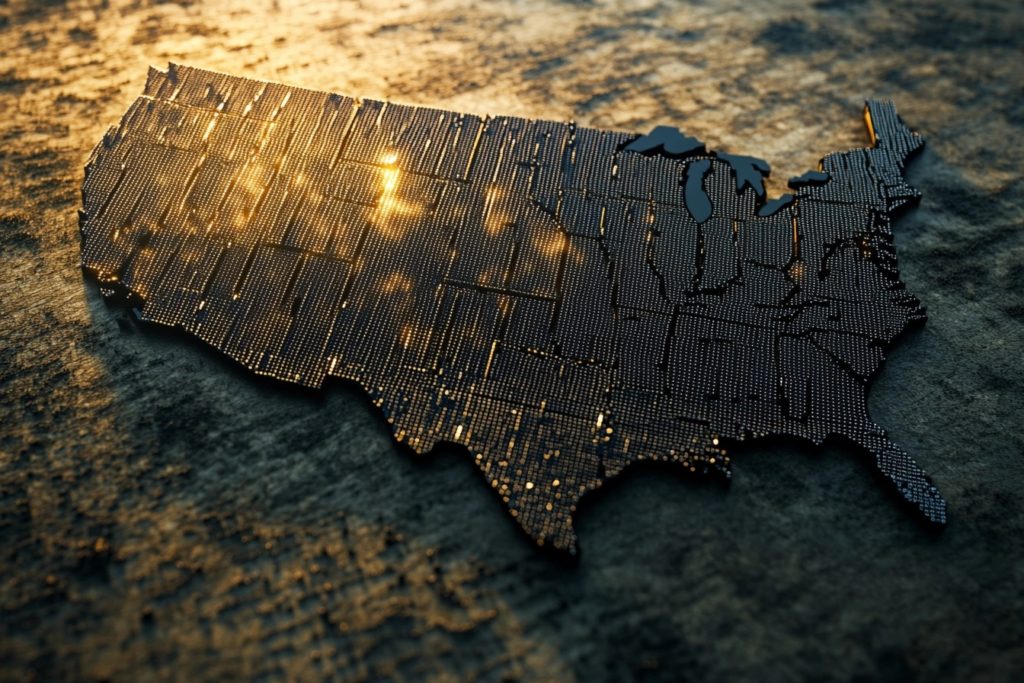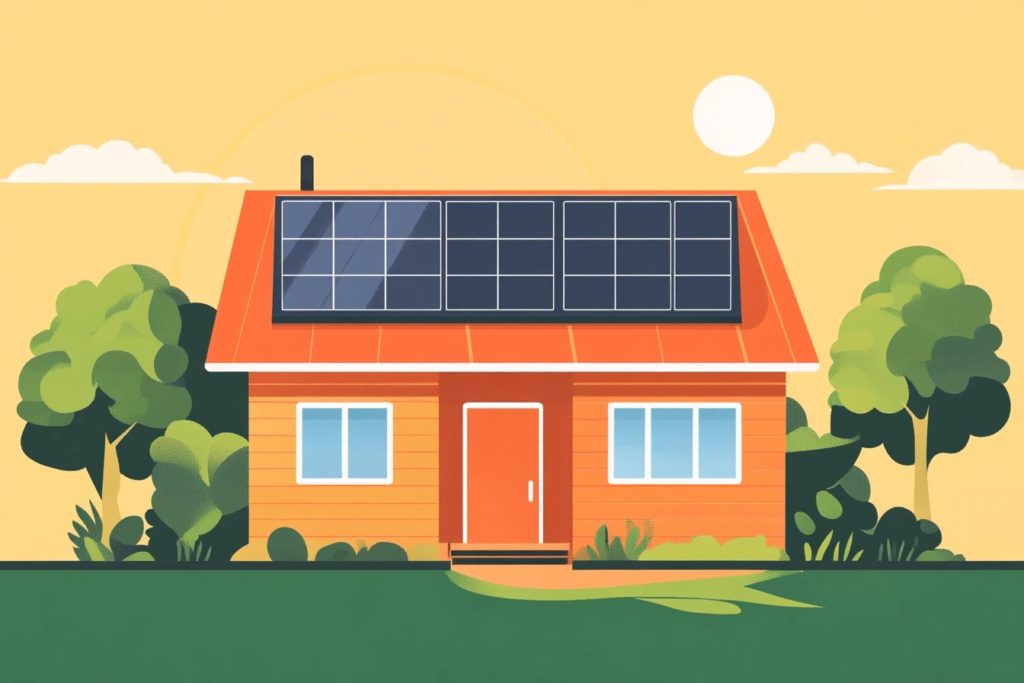
Of the reasons that motivated surveyed Americans to install solar panels, cost-savings and benefitting the environment were the top two. According to Deloitte, over half of solar panel users explained they use solar because it’s clean, helps the environment, and lowers their monthly bills.
You’re likely considering solar panels for the same reasons but aren’t sure where to start. Solar energy can be a complicated concept for those who don’t have prior experience, and searching for the right equipment brings up foreign terms.
The best solar panels for a rooftop will depend on the size of the roof, the budget, and the typical climate in the area. To help you narrow down your search and choose the right equipment, we’ve created this guide.
How to Choose the Right Solar Panels
Solar panels can certainly lower your monthly bills if installed correctly. It’s possible to get all your energy from your solar panels. In fact, you could have excess energy from your solar panels that you could sell to offset more costs.
Unfortunately, it’s not as easy as just slapping a few panels onto your roof. Not all solar panels are right for every situation, and your location has a lot to do with it. Everyone is getting at least some sunlight, but certain climates make it harder for solar panels to receive enough solar energy to do their job.
A solar panel system also consists of more than just panels. You’ll need to consider the type of inverter you need, for example, so that you can effectively turn that solar energy into energy that works for your home.
To get started, though, let’s talk about which types of solar panels are best for certain situations. Consider the size of your roof, how much you’re willing to spend, and what type of weather you generally experience.
What is Your Roof Like?
The size of your roof will determine how many panels you can fit and how big they can be. How you tackle this will also have a lot to do with your budget because you can decide to buy several cheaper panels or stick to a few more expensive ones.
While having a bigger roof gives you more surface area to fit panels, not all of your roof might be usable. If you have chimneys or weird corners, for example, this will cut into the space that you can use for panels. In addition, the direction of your roof plays a huge part in solar panel efficiency.
Consider what direction your house faces, as this will affect how much direct sunlight your panels will receive. The sun rises in the east and sets in the west, but it also stays on a southern path. For those who live in the northern hemisphere, having a south-facing roof covered in solar panels will be the most effective setup.
In comparison, having a roof that faces even southeast or southwest can significantly lessen this effectiveness. Further, having a roof that only faces west or east can reduce the amount of sun the panels receive throughout the day. Instead, a west or east-facing roof will receive more intense sunlight during a certain period of the day.
This surge of energy at one part of the day might be useful for you. For those whose energy bills are based on TOU (time of use price structure) rather than a fixed rate, a west-facing solar panel system can produce a burst of solar energy during the peak hours of energy use, offsetting the surge pricing from the electric company.
Keep all this in mind as you shop for solar panels. If you have a roof with several faces, you’ll want to consider which panels you’re buying and set them up in the best direction for optimum efficiency.
What is Your Budget?
Solar panels are certainly an investment. Like a car, you aren’t just thinking about a one-time cost with no other factors. The type of car you get will affect how much money you spend down the line, such as on gas and repairs.
Similarly, solar panels can be more expensive upfront but save you more money on bills. Therefore, you should consider not only how much money you can afford to spend on solar panels, but also how much money you’re looking to save in return. Think about what your usual electricity bill looks like and how the company prices out energy use.
The higher your average electricity bill is, the likelihood that you’ll save money with solar panels increases. This is because the initial costs of installation can sometimes be a huge barrier to saving money in the long run. Thankfully, installations costs have been going down over time as solar panels are becoming more common and production of these materials is increasing.
Many states offer incentives for installing solar panels as a way to break down this barrier. Research incentives like tax deductions and credits to see if installing solar panels will help your yearly expenses. Then, use this estimated savings to build a budget.
Finally, if you make enough solar energy, you can look into selling it back to the grid. Some home producers of solar energy make a few thousand dollars selling their energy every year. If this profit will make a huge difference in your decision, make sure to consult with your energy provider first.
Your budget will significantly affect which types of solar panels you can buy. Certain lower-efficiency solar panels can be more affordable, but might not work well enough to meet your needs. High-efficiency solar panels can cover your needs and more but might have too high of a price to make installing them worth it.
You can attempt to manipulate these costs by changing the number of panels you buy and setting them up on your roof for maximum energy production. Overall, find the best solar panels for the price by comparing your current bills to your installation costs and cost savings over time.
What is the Climate in Your Area?
Finally, your climate has a huge impact on your solar energy production. The amount of sun you get and in which direction plays a major role, but that’s not the only factor. Some areas are more prone to rain and snow, and some houses are always in shade from the surrounding landscape.
When it comes to choosing the right solar panels, you’ll need to find panels that have the right levels of efficiency for your climate and roof situation. Areas that don’t get a lot of sun, or roofs that don’t point in the right direction, will require higher efficiency solar panels. In addition, if your panels are covered in snow constantly, they won’t be able to function properly.
In addition to efficiency, you’ll want solar panels that can withstand your climate events. If you live in a high-risk area for hurricanes, for example, you’ll want to install solar panels that can last through high winds. Places that frequently get heavy snowfall will also need solar panels that don’t collapse under the weight.
If you live in a place that gets a lot of rain, the water won’t necessarily be a factor. Solar panel technology is meant for the outdoors, so it is waterproof. What you need to think about is cloud coverage.
Not all places get a lot of cloud coverage with rain, so think about the number of hours for sun exposure instead. The best solar panels for rain will be the ones that can get enough sun exposure during your average day.
The Best Solar Panels for a Rooftop
 Now that you know the basics of what factors will affect your solar panels, you’re probably wondering how exactly these factors will affect you. Which solar panels do we recommend for specific circumstances?
Now that you know the basics of what factors will affect your solar panels, you’re probably wondering how exactly these factors will affect you. Which solar panels do we recommend for specific circumstances?
We’ve been in the business for a long time, so our expert advice is based on which solar panels have made our clients happiest with their investment. Since our company services cover 27 different states, we’ve seen all types of roof and climate situations. Our opinions are based on the value of the solar panels according to efficiency balanced with a budget.
Best Solar Panels for Cold Weather
Cold weather doesn’t always mean you can’t benefit from solar energy. The top states for solar panel use happen to be in colder climates, including Massachusetts, New Jersey, and New York. Because these states have higher energy bills and better incentives, many residents have made the switch to solar.
These states also experience snow and cold winters, but they still receive enough sunlight to benefit from solar panels. Residents of colder areas mainly have to consider the durability of their panels under the weight of snow.
When it comes to the best solar panels for snow, the International Electrotechnical Commission (IEC) has a reliability standard for outdoor stressors on panels. Make sure to check this rating on solar panels in extreme weather environments. This rating will help you find the best solar panels for longevity in extreme environments.
Also, find panels that can be mounted in the best way for your situation. If you experience a lot of snow, look to install vertically-mounted panels so that snow slides off.
Further, solar panels function with rows of cells. If one cell is covered, the whole row suffers. Installing horizontal panels that are mounted vertically will stop snow from covering and affecting every row of cells as it accumulates on the roof.
Otherwise, studies have shown that chillier climates are more conducive for solar energy harvesting! In addition, as long as the panels aren’t covered in snow, the snow laying around reflects sunlight and helps to harvest further.
Best Solar Panels for Warm Weather
Despite what many people think, high temperatures decrease the efficiency of solar panels. In places like Florida, where you’d think everyone could benefit from solar energy, the temperatures are so high that solar panels suffer. While full sun exposure will certainly benefit your solar energy harvesting, you’ll have to be careful picking solar panels that can withstand extreme heat.
To combat this lower efficiency, the best solar panels for Florida will be high-efficiency panels like ones made of monocrystalline. Solar panels are made with silicone, and monocrystalline panels use single crystals of silicon. These crystals must be manufactured and are more expensive than polycrystalline solar panels.
Monocrystalline panels work better in higher temperatures because of the way silicon electrons are affected by heat. With a single crystal, the atoms do a much better job of flowing the energy even when sped up. Polycrystalline panels have imperfect crystal structures that don’t direct the energy as well, letting it escape.
Your second-best option is polycrystalline panels. These panels use several crystals of silicon instead of one in each cell. These cells don’t do as well of a job of directing the energy flow, but are better than lesser-quality solar panels.
Solar panels function at their maximum capacity when they are kept in 77-degree weather. Unfortunately, direct sunlight heats a solar panel, so you’ll need to take airflow into account as well. Make sure your solar panels are propped up at least 15 cm away from the roof so that air can cool the panels from below.
Best Solar Panels for Shaded Roof
Unfortunately, some people have roofs that are partially or fully shaded. Whether this is because you have a lot of trees around the property or structures that cast shadows on your house, this can be bad news for solar panels. Further, these shadows can be cast differently depending on the time of the year.
First and foremost, try to find a setup location for your solar panels that will avoid the shade the most. If there’s absolutely no way to do this, you’ll have to find the best solar panels for shade.
Remember that covering even one cell of a solar panel can affect way more than just that one cell. Rows of cells depend on each other, so covering one cell will affect the entire row. You’ll need to look at solar panel technology that can bypass this fault.
Try buying solar panels that have half-cut cells or bypass diodes. Bypass diodes allow energy to flow around cells that are shaded. Half-cut cells increase the number of pathways available for energy to flow through.
You can also try microinverters, which bring the functionality of inverters to each cell rather than outside the panel. That way, energy can be converted at each cell rather than waiting for the entire panel to send energy to the inverter.
Switch to Solar
Solar energy is no joke. Homeowners not only cut down on their energy bills but start making money on their solar panel production over time. There’s no reason to hesitate any longer about installing your solar panels, regardless of where you live.
LGCY Power is a leading solar power installation company trusted across the country to install the best solar panels for a rooftop. With LGCY Power, you can even install your panels with no money out of pocket because we offer financing plans. Start seeing the savings instantly!
Schedule a consultation today!




